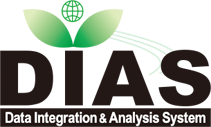


  |  |
| 名称 | AMY Project JICA-Tibet UpperAir dataset |
| 版 | rev2 |
| メタデータID | AMY_JICA_Tibet_UpperAir_dataset20230727071458-AMY20130909130838-DIAS20221121113753-ja |
| 名前 | JICA チベット プロジェクト |
|---|
| 名前 | 松本 淳 |
|---|---|
| 組織名 | 首都大学東京大学院地理環境科学域 |
| 住所 | 日本, 192-0397, 東京都, 八王子市, 南大沢1-1 |
| 電話番号 | 042-677-2596 |
| ファクシミリ番号 | 042-677-2596 |
| 電子メールアドレス | jun@center.tmu.ac.jp |
| 名前 | DIAS事務局 |
|---|---|
| 組織名 | 国立研究開発法人海洋研究開発機構 |
| 住所 | 日本, 236-0001, 神奈川県, 横浜市, 金沢区昭和町3173番25 |
| 電子メールアドレス | dias-office@diasjp.net |
| 名前 | 玉川 勝徳 |
|---|---|
| 組織名 | 国立研究開発法人 土木研究所 |
| 電子メールアドレス | tamakawa@icharm.org |
| 名前 | JICA チベット プロジェクト (プロジェクト 代表者 小池俊雄) |
|---|---|
| 組織名 | 国立研究開発法人 土木研究所 |
| 電子メールアドレス | koike@icharm.org |
creation : 2014-11-07
本データセットは,JICA/Tibet プロジェクトで得られた大気観測(GPS 可降水量計測装置(GPS)、ウインドプロファイラー・電波音響サウンディングシステム(WP+RASS)、及び GPS ゾンデシステム(Sonde)) について記述する。
GPSは24地点、Sondeは18地点、WP+RASSは1地点で観測している。
日中気象災害協力研究センタープロジェクト(JICA/Tibet)プロジェクトは、日中両国の研究者が過去十数年にわたって継続してきたチベット高原での共同観測とそこから得られた世界最先端の研究成果を基に、観測データのリアルタイム利用システムを開発し、それら観測データを取り込んだ数値予報モデルの開発を行い、現業気象予測システムの強化を通して、気象災害の軽減と水資源の有効利用を目指した。
チベット高原及びその東部周辺地域を対象に、新規観測拠点が設立され、GPS 可降水量計測装置(GPS)、自動気象観測装置(AWS)、大気境界層観測装置(PBL)、ウインドプロファイラー・電波音響サウンディングシステム(WP+RASS)、及び GPS ゾンデシステム(Sonde)が導入された。
活動期間である4 年4 か月(2005年12月から2010年3月)において、3 つのフェーズに分け進められた。
第1フェーズ: 2005年12月~2007年9月 観測システムの確立と予測モデルの開発
第2フェーズ: 2007年10月~2008年8月 観測システムの運用と予測モデルの改良
第3フェーズ: 2008年 9月~2010年3月 観測システム・予測モデルの性能評価
本プロジェクトで得られた観測データは、世界気候研究計画(WCRP)アジアモンスーン年(AMY)プロジェクトのデータポリシーに従い公開することが合意、了承された。
climatologyMeteorologyAtmosphere
environment
| 開始日 | 2007-12-31 |
| 終了日 | 2008-09-16 |
| 北限緯度 | 33.576 |
| 西限経度 | 84.062 |
| 東限経度 | 107.507 |
| 南限緯度 | 23.376 |
| キーワードタイプ | キーワード | シソーラス名 |
|---|---|---|
| theme | Water, Disasters, Climate | GEOSS |
| キーワードタイプ | キーワード | シソーラス名 |
|---|---|---|
| place | Asia | Country |
| キーワードタイプ | キーワード | シソーラス名 |
|---|---|---|
| theme | DIAS > Data Integration and Analysis System | No_Dictionary |
| 配布識別名 | 配布バージョン | 配布に関する説明 |
|---|---|---|
| ASCII text | unknown |
Asia Monsoon Year (AMY) Project の利用規約に従う(英文のみ可能)
1. No financial implications are involved for the AMY data exchange.
2. Commercial use and exploitation of AMY data is prohibited.
3. Any re-export or transfer of the original data received from the CDA archive to a third party is prohibited.
4. The origin of AMY data being used for publication of scientific results must be acknowledged and referenced in the publication.
5. AMY data users are strongly encouraged to establish direct contact with data providers for complete interpretation and analysis of data for publication purposes.
6. Co-authorship of data users and AMY Projects’ Principle Investigators on papers making extensive use of AMY data is justifiable and highly recommended.
1. No financial implications are involved for the AMY data exchange.
2. Commercial use and exploitation of AMY data is prohibited.
3. Any re-export or transfer of the original data received from the CDA archive to a third party is prohibited.
4. The origin of AMY data being used for publication of scientific results must be acknowledged and referenced in the publication.
5. AMY data users are strongly encouraged to establish direct contact with data providers for complete interpretation and analysis of data for publication purposes.
6. Co-authorship of data users and AMY Projects’ Principle Investigators on papers making extensive use of AMY data is justifiable and highly recommended.
Whenever AMY data distributed by CDA are being used for publication of scientific results, the author(s) shall sent a copy of the respective publication, preferably in electronic form, to the CDA in order to build up a AMY publication library. CDA will maintain this library and will it make public, for example via CDA's web site, for a continuous monitoring of the AMY data applications and AMY's achievements in general.
データ提供者がデータ利用規約を定めていない場合は,DIASサービス利用規約(https://diasjp.net/terms/)およびDIASプライバシーポリシー(https://diasjp.net/privacy/)が適用されます.
DIASサービス利用規約とデータ提供者によるデータ利用規約に齟齬がある場合は,データ提供者によるデータ利用規約が優先して適用されます.
データセットを利用した学会発表・論文発表・誌上発表・報告等を行う場合は,
“利用したデータセットは,国際協力機構「日中気象災害協力研究センタープロジェクト(JICA/Tibet) の枠組みの下で収集・提供されたものである.”
の引用文を謝辞として明記すること.
Whenever AMY data distributed by the CDA are being used for publication of scientific results, the data's origin must be acknowledged and referenced. A minimum requirement is to reference AMY and the CDA. If only data from one observation site (or a limited number of observation sites) has been used, additional acknowledgement to the observation site(s) and its (their) maintaining institutions or organizations shall be given.
Maintaining continuous, high-quality measurements, performing quality and error checking procedures, and submitting data and related documentation to the CDA will require substantial financial and logistical efforts of the data providers. The necessary support for these observation site activities originate from a variety of international, national and institutional sources. The CDA shall make proper reference to all AMY data providers and, if required, to their funding sources.
このデータセットを利用して学会発表,論文発表,誌上発表,報告などを行う場合は,以下を参考に謝辞を記載すること.また,データ提供者が示す謝辞の記載方法がある場合は,それも併記すること.
“ 本研究では、[データ提供者の名称]が提供する[データセットの名称]を利用した.またこのデータセットは、文部科学省の補助事業により開発・運用されているデータ統合解析システム(DIAS)の下で,収集・提供されたものである. ”
Journal of the Meteorological Society of Japan. Ser. II Vol. 90C(2012) : https://www.jstage.jst.go.jp/browse/jmsj/90C/0/_contents